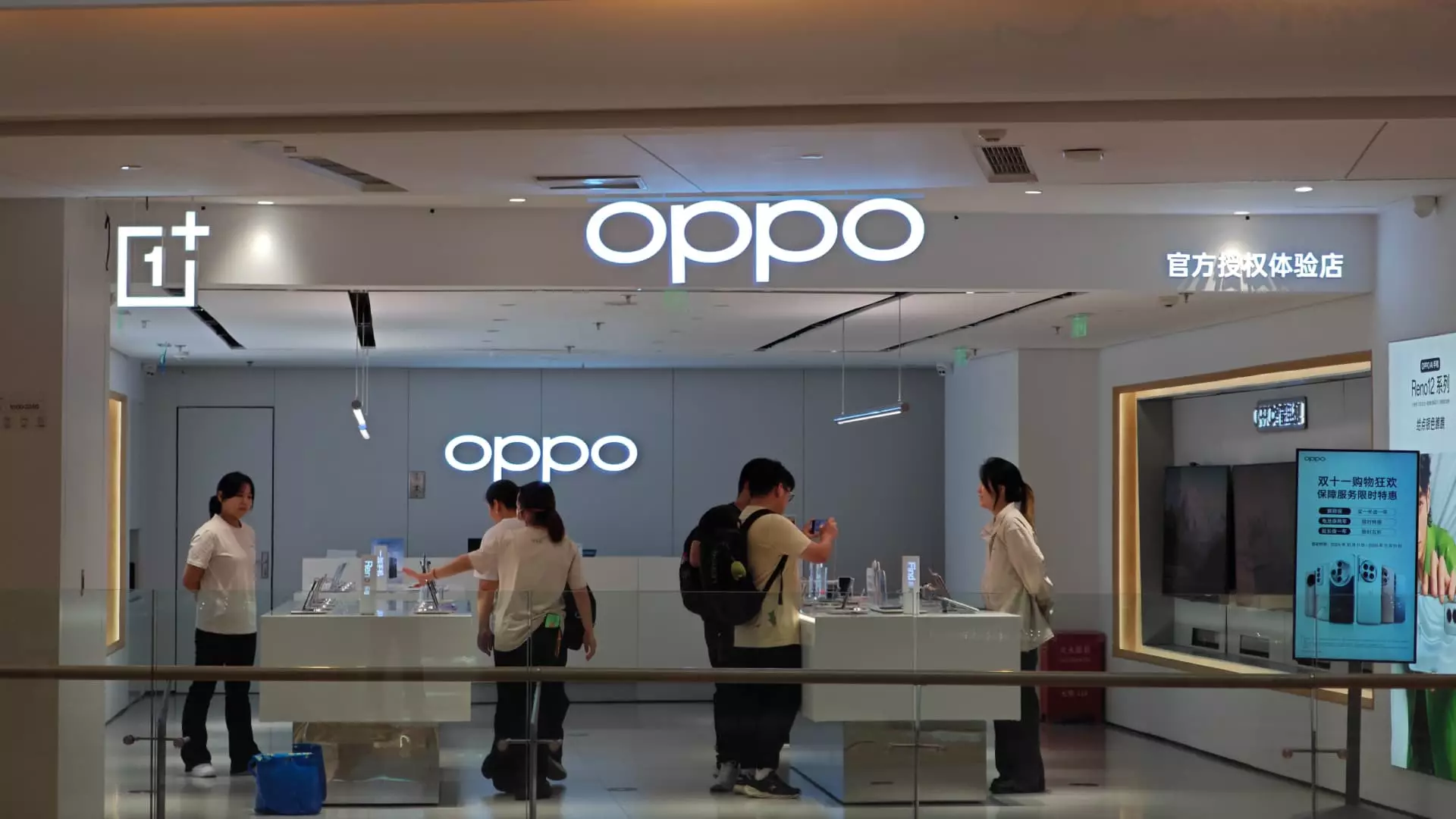The smartphone industry is buzzing with advancements, and artificial intelligence (AI) is at the forefront of this evolution. Chinese smartphone manufacturer Oppo is keenly aware of AI’s transformative potential as it prepares for the global launch of its upcoming flagship phone. The company is explicitly enhancing its collaboration with industry giants like Google and Microsoft to explore innovative applications of AI that cater to consumer demands. This article delves into Oppo’s strategic integration of AI, its market positioning, and the broader implications of this competitive race.
AI Partnerships and Consumer-Centric Innovations
Oppo is optimizing its offerings through weekly conversations with senior management from tech behemoths Google and Microsoft. By actively seeking input on consumer pain points, Oppo is positioning itself to tailor its devices to meet market needs effectively. Billy Zhang, the company’s president of overseas market sales and services, emphasized this collaborative approach, indicating that these tech titans are eager to understand the specific challenges faced by Oppo and its consumers. This cross-company dialogue is not just about troubleshooting; it is a proactive approach to innovation that ultimately seeks to enrich the user experience.
Zhang elaborated on Oppo’s vision by stating, “We know consumers’ needs, and we will use AI to satisfy them.” This insight signals a paradigm shift in how tech companies view AI—not just as a buzzword, but as a critical tool for consumer engagement and product improvement. By leveraging generative AI capabilities, Oppo aims to provide advanced features like AI writing assistance and content generation, ensuring that their devices resonate with tech-savvy users.
Oppo’s market strategy is multi-faceted as it expands its presence in Europe while strategically holding back on immediate plans for the U.S. market. Currently generating around 60% of its revenue from Southeast Asia and Europe, Oppo has secured a notable position in the global smartphone hierarchy, ranking fourth in terms of shipments—as reported by Canalys. This growth trajectory reflects a larger trend wherein emerging markets are becoming pivotal in driving technology adoption.
The competition is fierce, with Samsung and Apple leading the pack. Yet, analysts predict that Chinese manufacturers like Oppo may outperform in consumer applications of AI, despite the U.S. holding the upper hand in AI technology development. This scenario invites scrutiny into whether geopolitical tensions and export restrictions hinder innovation or if they simultaneously fuel creativity within China’s tech landscape.
Oppo is set to integrate advanced AI features, including tools from Google’s Gemini and Microsoft’s products powered by OpenAI, into its forthcoming flagship smartphone. The move represents a significant endorsement of generative AI technologies, capable of transforming mundane tasks into seamless user experiences. However, the details regarding existing models and their AI functionalities remain ambiguous, raising questions about the rollout strategy for these advanced features.
In addition to smartphone integration, Oppo’s proactive stance in deploying AI within its manufacturing processes is noteworthy. The brisk expansion of AI in Oppo’s factories illustrates a commitment to automation that enhances operational efficiency. By replacing 8% of its workforce with machines, the company is not only aiming to reduce production costs but also freeing up human resources for more complex roles—a move aimed at longevity in a rapidly evolving industry.
Global Implications and Future Outlook
As the demand for smartphones embedded with AI functionalities grows, research by Counterpoint predicts shipments of these devices could soar from 46 million last year to an astounding 732 million by 2028. With companies like Apple and Honor also introducing AI-driven features, the competitive landscape is heating up. Oppo’s ambitious goal of integrating generative AI into 50 million devices points to their readiness to capitalize on this burgeoning market.
Moreover, in line with global trends in which sectors increasingly embrace AI, Oppo too is seeking to automate processes that enhance quality, stability, and production speed. By transitioning to a digitalized manufacturing environment, the company is positioned to respond more rapidly to demands and minimize excess inventory risks. This strategic agility is essential for sustaining competitive advantage in a fast-paced industry.
Oppo’s aggressive investment in AI reveals its awareness of both consumer expectations and market dynamics. With partnerships and technology integration shaping the future of their devices, Oppo is setting the stage for an impactful presence in an AI-driven landscape. As companies across the globe navigate the implications of AI technology, the race to innovate promises exciting developments that could redefine user interactions with smartphones and beyond.

